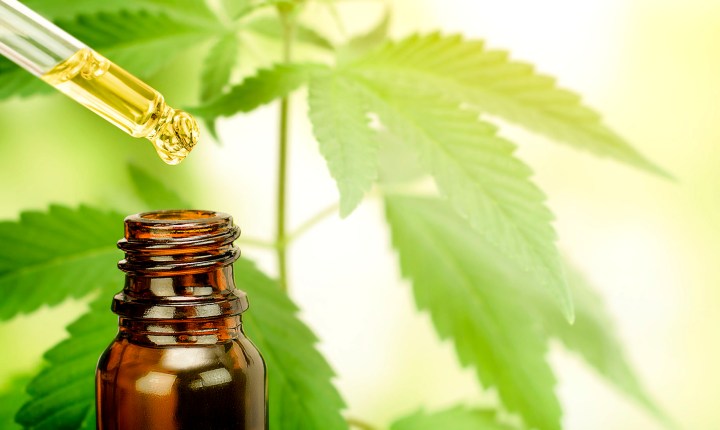DOSE OF DOUBT
Watch out — CBD oil’s hyped claims are being questioned

A review of 16 randomised controlled trials testing the efficacy of CBD products for pain found they did not work
Expensive, ineffective and possibly harmful, cannabidiol (CBD) and hemp products for pain have been given the thumbs-down by a group of researchers in the UK and Canada, after finding there is no evidence that they have any positive effect.
The research published in The Journal of Pain found CBD products widely sold in North America and Europe to have varying amounts of CBD – from none to much more than advertised – and warned that they may even contain harmful chemicals.
Out of 16 randomised clinical trials for pain using pharmaceutical CBD in oral, topical and other forms, 15 found no greater pain-relieving effect for CBD than for the placebo. The 16th trial was sponsored by a pharmaceutical company.
Meta-analyses (which combine data from a number of studies) of the clinical trials linked CBD to increased rates of serious adverse events and liver toxicity.
A 2021 International Association for the Study of Pain task force examined evidence for cannabinoids and pain but found no trials of CBD.
Sixteen CBD randomised trials using pharmaceutical CBD have been published subsequently. The trials were conducted in 12 different pain states, using three oral, topical and buccal/sublingual (cheek or under the tongue) administration, with CBD doses of between 6mg and 1,600mg, and durations of treatment ranging from a single dose to 12 weeks.
Small clinical trials using verified CBD suggest that the drug is largely benign, and although large-scale evidence of safety is lacking, there is growing evidence linking CBD to increased rates of adverse health events and liver toxicity.
In January 2023, the US Food and Drug Administration (FDA) called for new CBD regulations.
Current evidence suggests that CBD for pain is expensive, ineffective and potentially harmful.
Researchers warn that consumers should rely on evidence-based sources of information on CBD, and not advertisements because there is no good reason for thinking that CBD relieves pain.
There are also good reasons for doubting the contents of CBD products.
A 2021 International Association for the Study of Pain position statement concluded that due to a lack of evidence from high-quality research, it did not endorse the general use of cannabinoids to treat pain.
The task force concluded that preclinical studies, clinical trials and systematic reviews were “generally of low or very low quality” and showed small or nonexistent analgesic effects, despite some evidence of a mechanistic effect in animal models of pain.
Cannabis-based medicines are widely promoted as a source of pain relief. The CBD market worldwide is forecast to be worth $60-billion by 2030, with a compounded annual growth rate of nearly 20%.
About 26% of Americans, 16% of Canadians, 4.3% Germans and 2% of Britons use CBD products mostly for a chronic condition, the researchers say, which cost them upwards of $140 a month.
In another analysis of 105 topical CBD products in the US, THC was detected in 35%, with a total content of up to 100mg. Only one in four products were accurately labelled for CBD, one in five had less than 90% of the advertised CBD, and one in two had more than 110%.
In October 2023, UK food regulators slashed the recommended safe daily dose of CBD, citing a risk of liver damage and thyroid issues.
In South Africa, CBD has been widely available in mainstream pharmacies, supermarkets, health shops and other retail stores, and promoted for treating a range of conditions, especially pain.
Since 23 May 2019, preparations containing less than 20mg per daily dose of CBD have been legally sold here, although the South African Health Products Regulatory Authority (Sahpra) said manufacturers may only make an “accepted low-risk claim” or health claim.
When used for medical purposes, cannabis products are regulated by Sahpra.
In May 2020, CBD was listed in Schedule 4 of the Medicines and Related Substances Act, except in complementary medicines containing no more than 600mg cannabidiol per sales pack, providing a maximum daily dose of 20mg of CBD, and making a general health enhancement, health maintenance or relief of minor symptoms; or processed products made from cannabis raw plant material intended for ingestion containing 0.0075% or less of cannabidiol.
CBD oil has become a popular drug for a variety of conditions, and many studies are under way on the oils effectiveness.
Another article in the academic website The Conversation, written by Kent E Vrana, professor and chair of pharmacology at Penn State University, found while there is growing evidence that CBD can help with certain conditions, caution is needed. “Rigorous scientific studies are limited, so it is important that the marketing of CBD products does not get out ahead of the research and of robust evidence,” he writes.
As of early 2023 there were 202 ongoing or completed scientific trials examining the effectiveness of CBD in humans on such diverse disorders as chronic pain, substance use disorders, anxiety and arthritis, he writes.
In particular, CBD appears to be an anti-inflammatory agent and analgesic, similar to the functions of aspirin. This means it might be helpful for treating people suffering from inflammatory pain, such as arthritis, or headaches and body aches.
CBD also holds potential for use in cancer therapy, although it has not been approved by the FDA for this purpose. DM


















Just how “independent” are these trials? Your article states that the 16th trial was funded by the pharmaceutical industry. But who funded the others and what ties did they have to Pharma? Worldwide, there is a concerted campaign aimed at alternative and particularly homeopathic remedies. These are all funded and/or sponsored by the pharmaceutical industry.